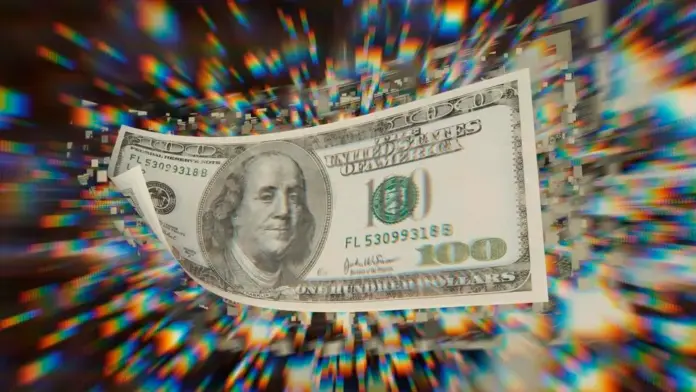
“
The presidential executive order is hardly the only time the federal government has asked itself whether it is time for the U.S. to adopt digital currency.
Just a few months after the Biden executive order, the New York Federal Reserve launched a 12-week program using simulated data to test a so-called digital dollar.
Supporters of CBDCs say they can help make banking services cheaper, easier, faster and more accessible for all Americans.
However, critics argue that a digital dollar would generate major privacy concerns and hand over too much power to the federal government.
CBDCs resemble cryptocurrencies like Bitcoin. But while Bitcoin is managed by a decentralized network made up of tens of thousands of participants, CBDCs are highly centralized assets managed by governments and central banks.
More and more, the use of physical cash is being replaced by digital transactions, via credit cards, debit cards and payment apps. However, transactions using digital dollars would be very different—that’s because a digital dollar would be a direct liability of the Federal Reserve, rather than a commercial bank or another financial institution.
In today’s U.S. financial system, people access their money via banks, each of which has its own distinct system for tracking payments and deposits. As a result, transactions involving multiple banks can involve delays of one to three working days, since action is required from intermediary banks to ensure they are completed accurately.
With a digital dollar, there would most likely be a single, unified system for tracking payments and deposit, run by the Fed or another government entity. It’s worth noting that the central bank has yet to commit to creating a CBDC in the first place, so the final form of a digital dollar system remains an open issue.
Presently the Fed is studying how a digital dollar could help expand consumer access to the financial system and support faster and cheaper payments.
A 2021 survey by the Federal Deposit Insurance Corporation found that 4.5% of U.S. households are “unbanked.” That means no members of those households have a bank account. Without a bank account, these Americans also do not have access to many digital payment systems, such as Apple Pay and Venmo, because those services require links to bank accounts.
Fed digital dollar accounts could be structured to have no fees and no minimum balances, potentially granting digital banking access to all Americans.
Critics of a digital dollar say it would hand too much power to the U.S. government. Critics contend that it would open the door for the Federal Reserve to more tightly control how Americans spend and save their money.
The government could potentially restrict access to funds or credit, implement negative interest rates on cash, collect taxes automatically or eliminate physical cash entirely. The government could also monitor digital transactions and collect data on Americans’ financial activities.
In a recent speech, Bowman argued that less than one in 20 U.S. households are unbanked. Those unbanked households say they simply don’t want a bank account or don’t trust banks.
“I think it is unlikely that this group would find the government somehow more trustworthy than highly regulated banks,” Bowman said.
In March, Republican Senator Ted Cruz reintroduced legislation to ban the Fed from creating a digital dollar system, which he says could be used as a “financial surveillance tool by the federal government.”
Democratic Presidential candidate Robert Kennedy Jr. … has said the government could potentially freeze Americans’ digital dollar funds to force them to comply with “arbitrary” federal mandates.
Republican Florida Governor Ron DeSantis has said a U.S. CBDC could pose a risk to Americans’ Second Amendment rights.
Democratic Presidential candidate Robert Kennedy Jr.—a controversial anti-vaccine activist and conspiracy theorist—has said the government could potentially freeze Americans’ digital dollar funds to force them to comply with “arbitrary” federal mandates.
“
Analysis – “This article is very obviously written with a biased tone but does a good job of telling me what the federal digital dollar is. I am not a fan of the way Forbes has attacked the ideas of Digital Dollar skeptics by attacking their opinions on things that have nothing to do with finance. This makes me even more skeptic about adopting a CBDC.
In short, a CBDC is going to be the United State’s Cryptocurrency. It will be tied to the dollar and really is not more different than the virtual money on your debit card. I assume it will save the Federal Reserve ink and paper because now they will just set a paperweight on the number “9” on their keyboard and hit “enter” instead.” – Easton Nguyen



